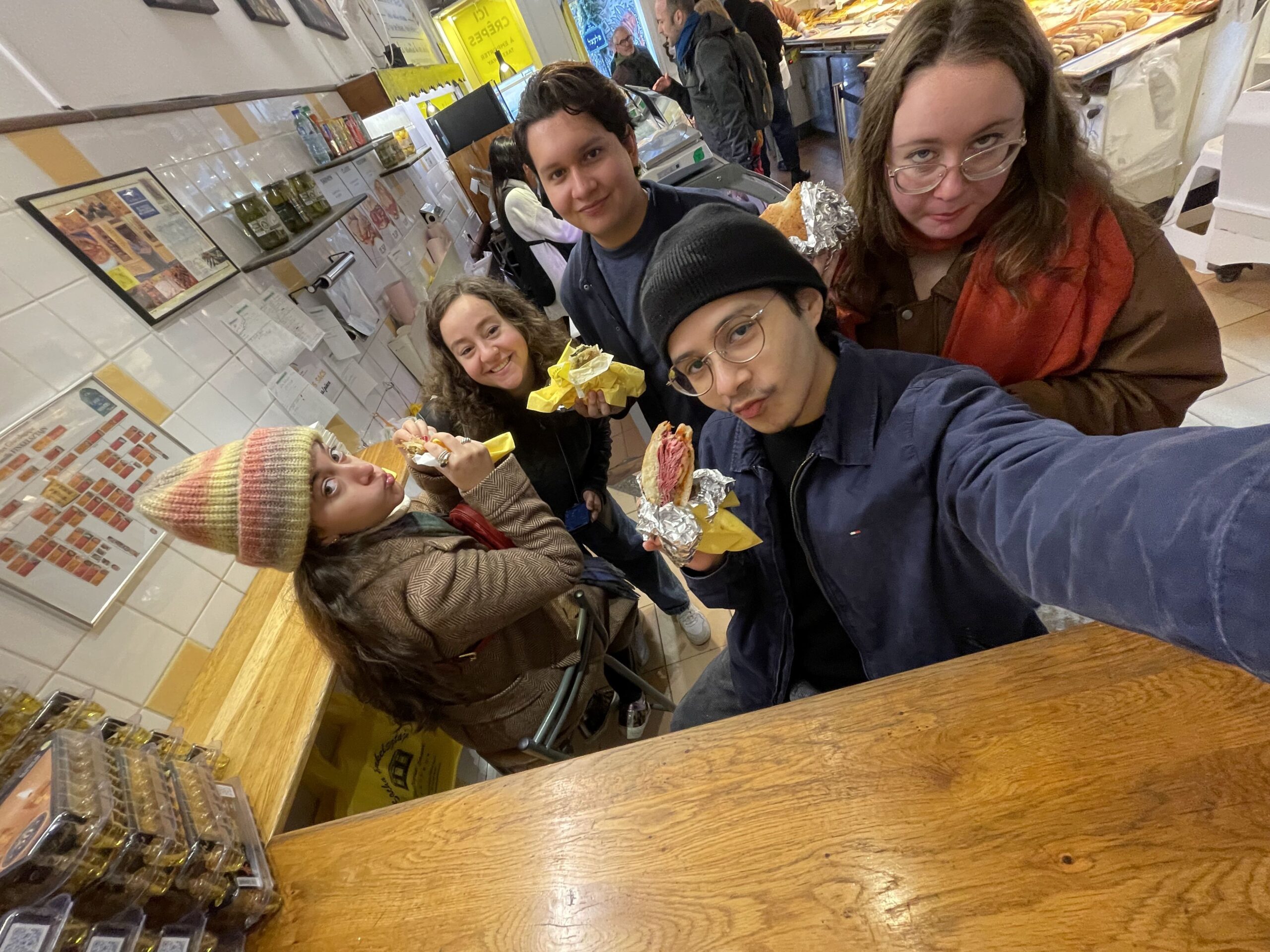No Campus? No Friends? No Problem! – A Reflection on Relationships During Study Abroad and Beyond
By: Josue Ruiz, CAS ’25

SA: CASA Barcelona: Spanish Universities Program, Spain
Josue, one of the Semester Abroad Global Correspondents, shares his experience abroad during the Fall 2024 semester. Follow along with the group of correspondents on our blog and look out for their images on the @pennabroad Instagram feed.
What does it mean to build relationships? Is it human nature? A quest for community? Or
perhaps it’s about finding the kind of connections that foster trust and intimacy. Sometimes, we
long for the closeness of familiar friends. Other times, we crave the fresh perspectives that
come with meeting new people—not because we’re dissatisfied with current relationships, but
because we want to expand our world.
As a senior, I often find myself wondering, “How will I make friends after college?” Without the
structure of classes, dorms, or shared proximity, the idea of building relationships feels daunting.
It is in this headspace that I entered my semester abroad in Barcelona, an experience that
ultimately reshaped how I approach this question and the nature of relationships altogether.
“Want to grab dinner?” “Anyone up for a beach day?” “Want to study at a café?” These were all
too familiar phrases during my first weeks abroad, echoing the social dynamic of freshman year.
In a new environment with no pre-existing relationships, I felt a similar urgency to build
connections. Studying abroad presented a fresh start—a unique opportunity to forge bonds with
new classmates, locals, and others in my program.
This was freshman year anew, except that the path for building relationships was much more
ambiguous than the one on campus. Without a central campus, there were no coincidental
pass-by greetings on Locust, nor any spontaneous dining hall self-introductions or roommate
debriefs. Although these interactions may seem insignificant, they lay the groundwork for a
sense of community. In a new city, I knew I had to be inventive and creative if I wanted to build
friendships.
Although there was no Locust walk or College Green, I studied my options for building
relationships. Join a sports team. As much as my parents would have loved a soccer player
son, no. Join an arts group. Yes, except I kind of completely forgot how to play guitar and piano
so no. A lot of the ways that I would previously have made friends back home were simply no
longer an option. Stumped with this issue, I found myself dissecting the process of building new
relationships.
I came to the realization that making friends is less about relying on a single organization to
bring people together, but rather about being adaptive to the opportunities at hand. Instead of
depending on a university to offer structures for building relationships, I knew that I had to
consider new options with an open mind. When I let go of this mindset of dependence, I came to
realize that making friends wasn’t all too difficult. Oftentimes, all you have to do is say “yes,” or
be active in spaces you’re already in.
In my weekly English conversation groups, I held meaningful conversations with locals, with
topics ranging from food to language to science to economics. In my required program trips, I
challenged myself to be more social than I usually was. Whenever some students in my
program offered to get gelato or go to the beach, I simply responded with “yessss!” Doing so is
what led me to have some of the most meaningful experiences of my undergraduate years.
From celebrating my 22nd birthday, to celebrating Friendsgiving and making great local friends,
my experience in Barcelona came with a myriad of happy memories. I quickly came to learn that
making friends wasn’t inherently more strenuous, it was just different.
Although I admit that overly relying on education systems to build relationships may seem a little
silly, I would like to believe that a lot of college seniors deal with a similar challenge. For me,
studying abroad has been about letting go of the things you know in order to grasp a more
universal language of the world. In my personal experience, this more universal understanding
has come in the form of adaptiveness in new social environments.
Nearing the end of my study abroad and my undergraduate studies, I look toward life beyond
college with confidence and excitement. While it can be nerve wracking to imagine an
environment where there are no invisible strings pulling you into relationships with others, it can
also be liberating. Studying abroad has revolutionized the way that I think about relationships,
calming my anxieties and sparking new excitement for the future.
The Study Abroad (SA) program offers undergraduate students the opportunity to study in a new global community through extended study for a semester or year. Penn Abroad partners with top institutions around the globe and collaborates with Penn’s undergraduate schools to offer programs for students across academic disciplines.